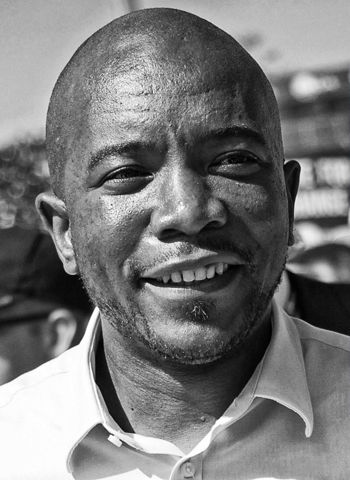In the dim corridors of power, where handshakes often mask the true intentions of alliances, the foreign policy of the African National Congress (ANC) has begun to resemble a troubling dance with questionable partners.
The solidarity with regimes that trample on democratic values is raising eyebrows and, more importantly, questions. How does the party of liberation, once a beacon of resistance against oppression, now find itself sidling up to leaders who silence dissent and hollow out their nations’ futures?
The African National Congress has been fostering relationships with leaders of illiberal regimes across the SADC region, a strategy that is both fascinating and deeply troubling.
Once a beacon of resistance against oppression, the ANC now appears comfortable aligning itself with regimes that suppress democracy and silence dissent. These alliances are not mere acts of diplomacy; they are a moral reckoning for South Africa and its future.
The ANC’s willingness to ride or die with its liberation struggle allies, even as those allies evolve from liberators into oppressors, is glaring. The party’s camaraderie with Frelimo in Mozambique and Zanu-PF in Zimbabwe illustrates this troubling trend.
Dubious endorsements
Take, for example, President Cyril Ramaphosa’s decision to attend the inauguration of Mozambique’s President Daniel Chapo.
This attendance, far from being a neutral gesture, lent credibility to a regime whose election process was marred by violence, protests and allegations of fraud. More than 300 people have been killed in post-election unrest, including political figures like attorney Elvino Dias and Podemos party official Paulo Guambe.
By standing alongside Chapo, Ramaphosa effectively endorsed a government accused of widespread human rights violations.
This pattern is not unique to Mozambique. President Ramaphosa was one of only three heads of state to attend the inauguration of Zimbabwe’s Emmerson Mnangagwa, further solidifying ties with a regime notorious for cracking down on dissent and undermining democratic processes.
The hypocrisy is striking. South Africa has taken strong moral stances on issues such as the Western Sahara and the Israel-Palestine conflict, ostensibly to advocate for the weak and marginalised. Yet, the ANC turns a blind eye to the violence and repression unfolding in its immediate neighbourhood.
The consequences of these alliances extend far beyond moral inconsistency. Failed states are often the result of corrupt, extractive political regimes — a reality that Mozambique and Zimbabwe exemplify.
When nations fail, their citizens flee. According to StatsSA, Mozambique and Zimbabwe are the largest sources of migrants to South Africa. These inflows strain South Africa’s already overburdened healthcare and social systems.
If the ANC is serious about addressing unregulated immigration, it must tackle its root causes by supporting democracy and stability in the region. Instead, it does the opposite.
Admittedly, regional stability is a complex issue. A return to civil war in Mozambique would be catastrophic, both for its people and for South Africa. Economic ties, including open borders for trade, are vital. Yet, these practical considerations do not justify tacitly endorsing flawed elections and repressive regimes.
South Africa could have pushed for fresh elections in Mozambique and refused to recognise Zimbabwe’s disputed outcomes.
Deference to autocracy
Such actions might have forced SADC to adopt a stronger stance, despite Mnangagwa’s calls for full recognition of his electoral victory. Instead, South Africa’s deference undermines regional democracy and emboldens autocrats.
The ANC’s deepening relationships with Frelimo and Zanu-PF raise disturbing questions. Are these alliances merely about historical solidarity, or is the ANC seeking lessons on how to cling to power by any means necessary? President Ramaphosa’s announcement of a liberation movement conference this year suggests a troubling alignment with parties that have blood on their hands.
Martin Niemöller’s famous words about the perils of silence resonate deeply here. Rephrased for our context: First, they came for Zimbabwean democracy, and I did not speak out because I was not Zimbabwean. Then, they came for activists in eSwatini, and I did not speak out because I was not Swati. Then, they came for Mozambique’s elections, and I did not speak out because I was not Mozambican. Finally, they came for my democracy in South Africa – and there was no one left to speak for me.
The ANC must be called out for its complicity in eroding democracy in the region. By bolstering corrupt regimes it not only betrays its own history, but also jeopardises South Africa’s moral standing and long-term stability.
It is time for South Africans to demand better leadership that prioritises democratic values over dubious alliances. DM




